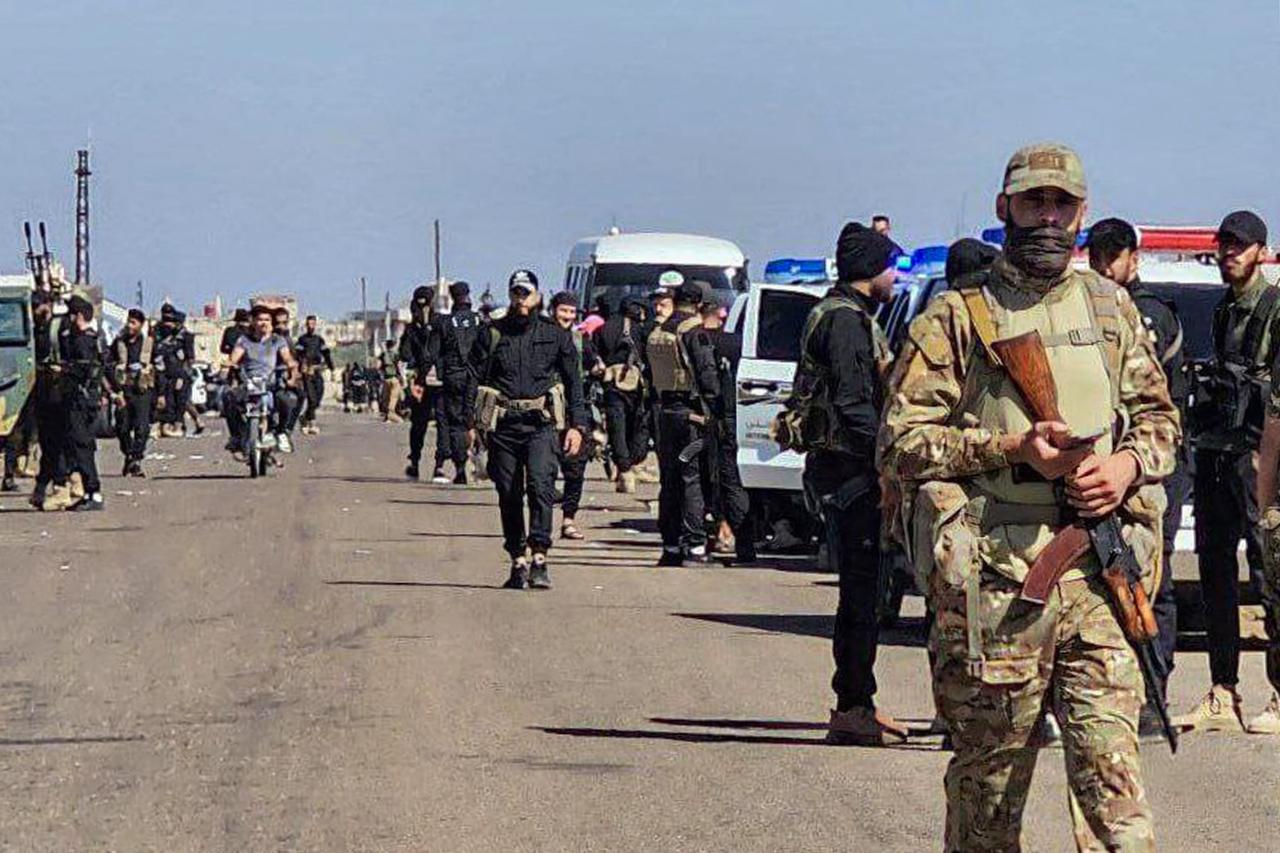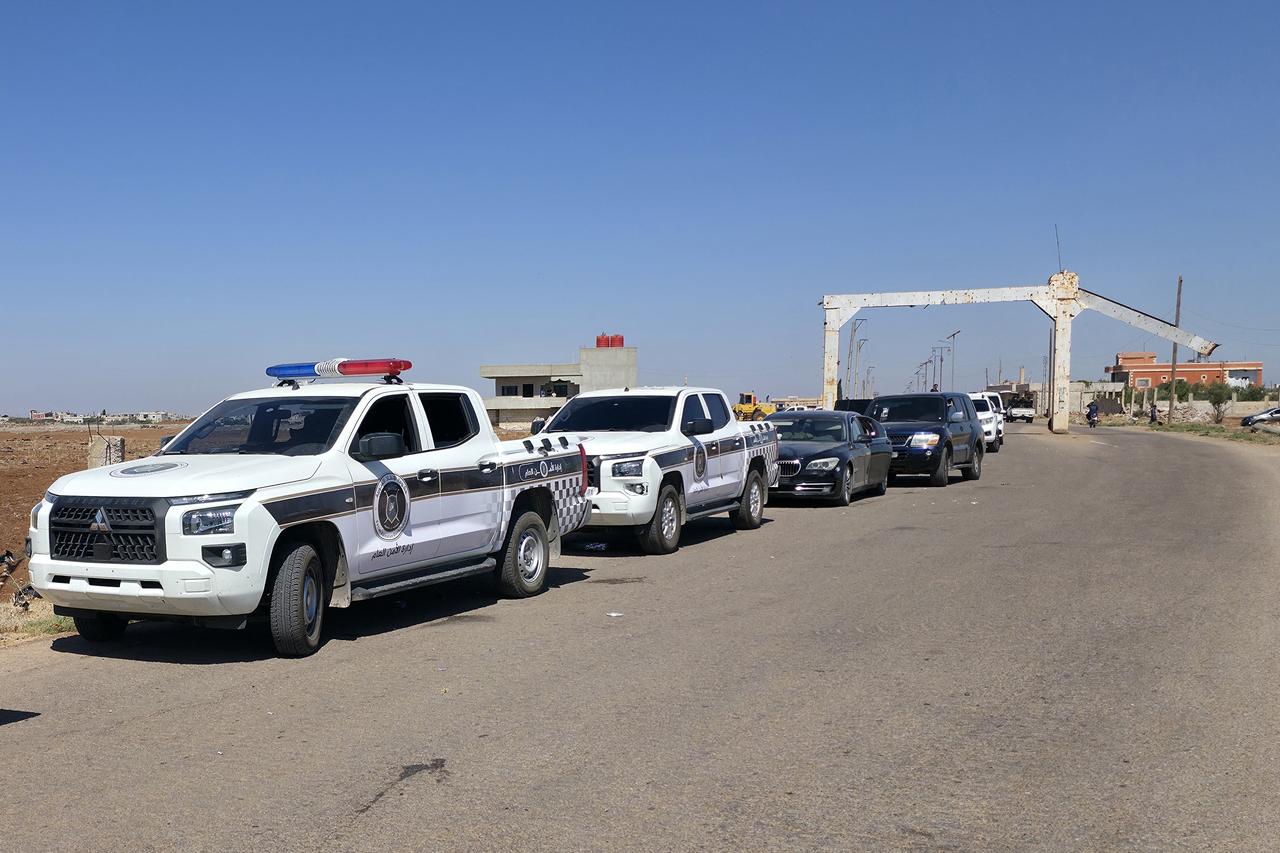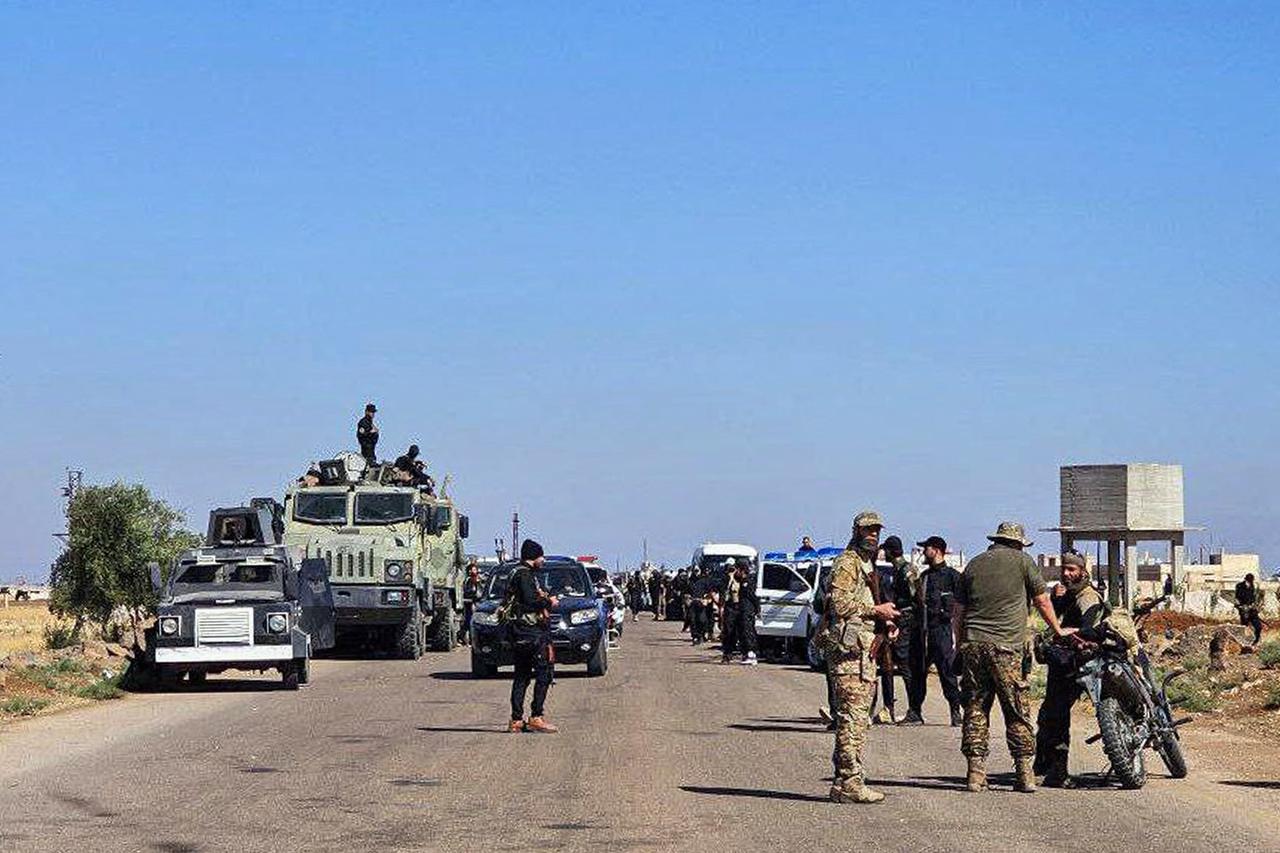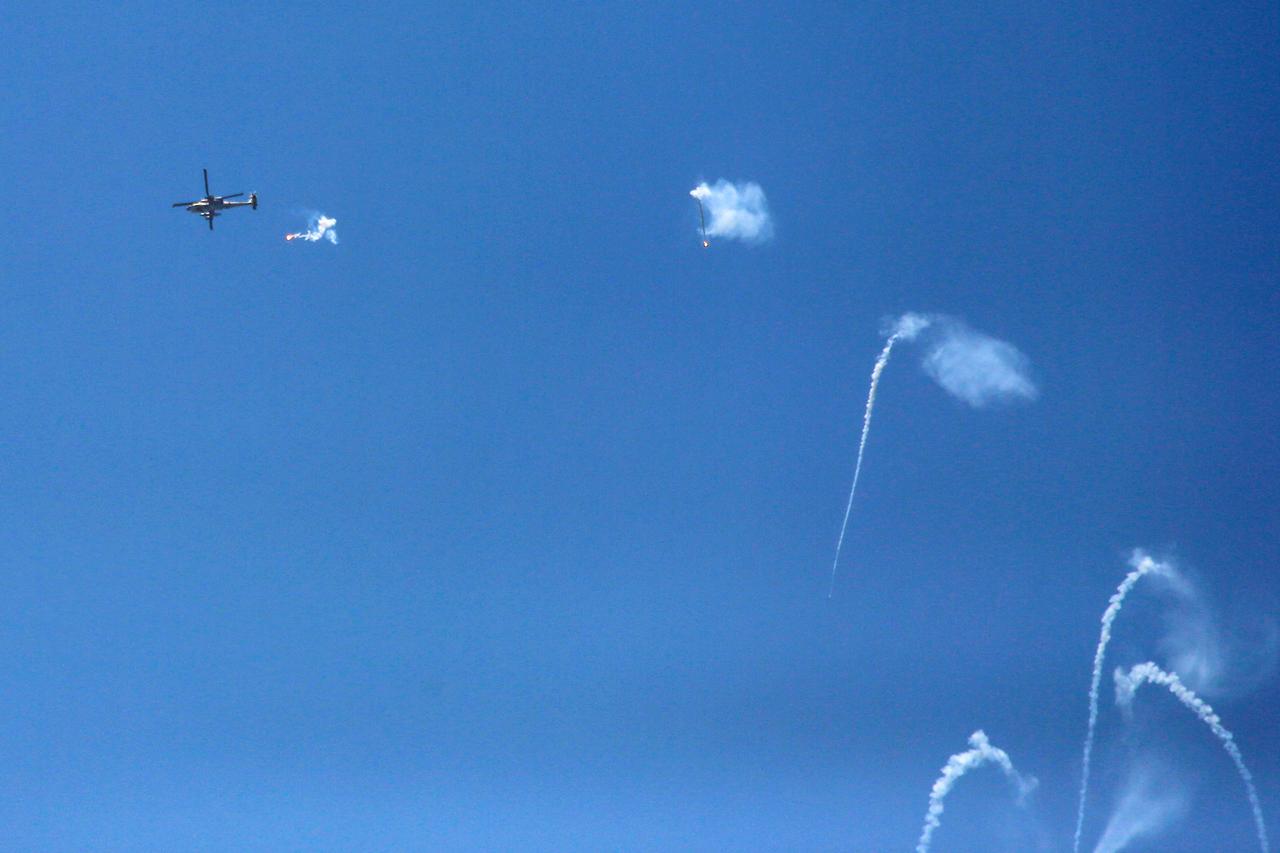
Israel's army said Monday it has struck military tanks in southern Syria as ongoing clashes between Druze militias and Bedouin tribes have killed at least 89 people in the country's Sweida province.
The Israeli military announced that "a large number of tanks" were targeted near the village of Sami, close to Sweida, where Syrian government forces and Bedouin tribes have been fighting with Druze members.
A Defense Ministry source told state broadcaster Syria TV that six Syrian soldiers were killed and nine others captured in the ambush.
According to the latest unconfirmed reports, at least 89 people have been killed in ongoing clashes between Syrian Druze fighters and Bedouin tribes, the Britain-based Syrian Observatory for Human Rights (SOHR) said Monday.
The monitor reported that "46 Druze fighters, four civilians from Sweida, 18 Bedouin fighters, 14 security personnel, and seven unidentified individuals in military uniform were among the dead."
Syrian government forces deployed to the region to suppress the fighting were attacked by Druze militias.

Interior Ministry spokesperson Nureddin al-Baba said a joint deployment plan by the defense and interior ministries is underway to restore order.
Fighting remains concentrated in the south and the western countryside of Sweida.
Sheikh Hikmat al-Hijri issued a statement rejecting the Syrian army’s presence and accused Damascus of supporting Bedouin tribal factions.
"We will not allow the entry of Syrian military or security forces into the area," Hijri said, calling for "urgent international protection" for Druze communities.

The Israeli army announced that "a large number of tanks" were targeted near Sweida province, where clashes between Druze and Bedouin Arabs are taking place.
Witnesses in the region reported Israeli warplanes flying along the Quneitra–Sweida–Daraa corridor.
Israel, which has supported Druze communities diplomatically and militarily in past years, has not confirmed whether the latest strike is part of a broader campaign.
Israel’s government has previously expressed concern over the integration of Druze areas into Bashar al-Assad’s post-war Syrian state and has offered political backing to Druze factions.

The violence began Sunday morning when Druze groups seized some vehicles belonging to Bedouin Arab tribes, leading to small-scale armed clashes.
The conflict escalated as both sides kidnapped and detained some civilians.
Interior Ministry Spokesperson Nureddin al-Baba told the Syrian News Channel that they were responding to calls for help from the people of Sweida and were coordinating with influential parties in the province.
"A security deployment plan was prepared by the defense and interior ministries; the aim of this plan is to establish state authority and the rule of law and disarm illegal armed groups," Al-Baba said.
The streets of Sweida were deserted, according to AFP. "We lived in a state of extreme terror—the shells were falling randomly," said Abu Taym, a 51-year-old father in Sweida, on Monday to Agence France-Presse (AFP).
"Traffic on the streets is paralyzed, and most shops are closed."
In the wake of those incidents, Israel—which has occupied part of Syria's Golan Heights since 1967—cited the protection of the Druze to justify several strikes, including one in early May near the presidential palace in Damascus.
Israel is home to around 152,000 Druze, according to the latest available data, including 24,000 living in the Israeli-occupied Golan, of whom fewer than five percent hold Israeli citizenship.